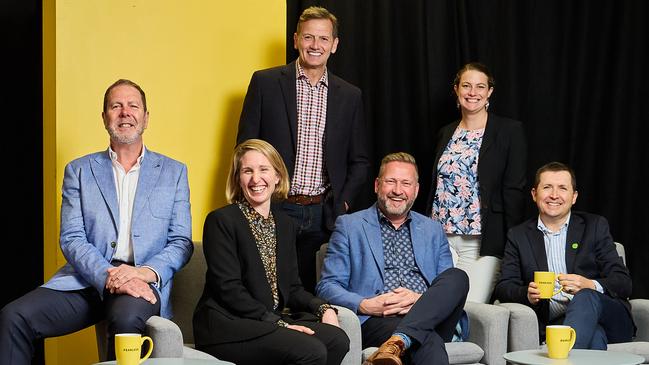Fearless Conversations: More funding needed to help South Australia’s declining mental health
Just 1 per cent of the entire mental health budget is spent on prevention. Watch an expert panel discuss what can be done now to prevent suicide and improve outcomes.
Fearless Conversations
Don't miss out on the headlines from Fearless Conversations. Followed categories will be added to My News.
A lack of funding for intervention and prevention is driving a mental health crisis in Australia, a leading expert says.
Mental Health Commissioner David Kelly is calling for politicians and business leaders to address the issue.
“We spend only 1 per cent of the entire mental health budget – and that was just under $9 billion three or four years ago – on prevention,” he said.
“We need to be working on strategies to speak to our politicians, to speak to our leaders in media, in business and in the community about how we address this issue. Because we can’t do the important work (around) building mental health and communities if we’re constantly channelling all our resources primarily into hospitals.”
Mr Kelly was speaking during this week’s The Advertiser and Flinders University Fearless Conversations forum, discussing the topic of mental health: nurture versus nature. It is the ninth in the 2022 series, which brings together leading voices in roundtable discussions about the big issues facing the state.

Hosted by 7News journalist and presenter Mark Soderstrom, the panel also included Flinders University associate professor Sarah Cohen-Woods, lead mental health commissioner South Australia John Mannion, Sonder executive manager for youth services Steven Wright and headspace program manager Jess Morgan.
Associate Professor Cohen-Woods stressed that having a higher genetic risk of mental illness does not determine the inevitability of developing the condition.
“The idea of nature versus nurture is very common but we know now it’s nature and nurture and how they work together,” she said, adding that environmental factors can modify a person’s genetic risk.
With an average of nine Australians taking their own lives each day, suicide prevention and postvention – supporting those who have been bereaved by suicide – was also on the agenda, with Mr Mannion describing South Australia’s recent Suicide Prevention Act and Suicide Prevention Council “an exceptional foundation”.
“We know the suicide conversation is a complex conversation but it’s not one we should be scared of having,” he said.
Ms Morgan stressed the importance of having “multiple strategies in place to build resilience and people’s capacity to navigate through life”, while Mr Wright discussed the need for conversations around pathologising mental health.
“It’s normal to feel sad or upset in relation to some pretty awful things that happen to people at times and that doesn’t mean they will necessarily experience a depressive illness,” he said. “Having those conversations is really important as well.”
Other issues canvassed in the wide-ranging discussion included the risks of social media, waiting time for GP appointments and overcoming the stigma of mental illness.
■ REGISTER FOR FEARLESS CONVERSATIONS AT FLINDERS.EDU.AU/FEARLESS/CONVERSATIONS





